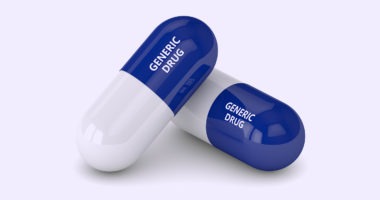Pfizer’s $14 Billion Acquisition of Medivation: What It Means for Pfizer
Pfizer has agreed to acquire Medivation, a pharmaceutical company specializing in small-molecule oncology drugs, for $14 billion in a friendly acquisition bid, beating out Sanofi and other suitors that had been interested in acquiring the company. So what will Pfizer gain? DCAT Value Chain Insights takes an inside look.
Pfizer will add to its oncology portfolio with the key product being Xtandi (enzalutamide), a prostate cancer drug that generated approximately $2.2 billion in worldwide net sales over the past four quarters. DCAT Value Chain Insights looks how the acquisition fits into the company’s overall drug portfolio.
 |
| Ian Read Chairman and CEO Pfizer |
A look at the deal
Pfizer has agreed to acquire Medivation, a pharmaceutical company based in San Francisco, California that is developing and commercializing small molecules for oncology, for $81.50 a share in cash or approximately $14 billion. Both companies’ board of directors have unanimously approved the merger. The closing of a tender offer that will be made by a Pfizer subsidiary is subject to customary closing conditions, including US antitrust clearance and the tender of a majority of the outstanding shares of Medivation common stock. Pfizer will acquire any shares of Medivation that are not tendered into the offer through a second-step merger, which will be completed following the closing of the tender offer. Pfizer expects to complete the acquisition in the third or fourth quarter of 2016.
In seeking to acquire Medivation, Pfizer won out over efforts by Sanofi, which was also interested in acquiring the company. Sanofi first made a bid to acquire Medivation in late April 2016 and again in early May 2016, with an initial offer of $9.3 billion, which was rejected by Medivation. Sanofi then took the strategy of seeking to replace the Medivation board in a hostile takeover bid but later increased its offer for Medivation to approximately $10 billion in July 2016 and was advised by Medivation it would be one of the companies considered in an acquisition bid.
“The proposed acquisition of Medivation is expected to immediately accelerate revenue growth and drive overall earnings growth potential for Pfizer,” said Ian Read, chairman and chief executive officer, Pfizer, in a company statement. “The addition of Medivation will strengthen Pfizer’s Innovative Health business and accelerate its pathway to a leadership position in oncology, one of our key focus areas, which we believe will drive greater growth and scale of that business over the long-term. This transaction is another example of how we are effectively deploying our capital to generate attractive returns and create shareholder value.”
What Pfizer gains
The key gain for Pfizer is Medivation’s prostate cancer drug, Xtandi (enzalutamide), an androgen receptor inhibitor that blocks multiple steps in the androgen receptor signaling pathway within the tumor cell. Xtandi generated approximately $2.2 billion in worldwide net sales over the past four quarters as recorded by Astellas Pharma Inc., with whom Medivation entered an agreement in 2009 to develop Xtandi globally and commercialize jointly in the US. The drug was approved by the US Food and Drug Administration in 2012. Medivation and Astellas are continuing a development program for Xtandi, including two Phase III studies in non-metastatic prostate cancer and another Phase III study in hormone-sensitive prostate cancer. It is also being further developed in Phase II studies for the potential treatment of advanced breast cancer and hepatocellular carcinoma.
In addition, Medivation has a late-stage oncology pipeline, which includes two development-stage oncology assets, talazoparib and pidilizumab. Talazoparib, currently in a Phase III study for the treatment of BRCA-mutated breast cancer, has the potential to be a highly potent PARP inhibitor and could be efficacious across several additional tumors. Pidilizumab is an immuno-oncology asset being developed for diffuse large B-cell lymphoma and other hematologic malignancies and has the potential to be combined with immuno-oncology therapies in Pfizer’s portfolio.
The proposed acquisition of Medivation adds to Pfizer’s pipeline and commercial portfolio in oncology. The key product in Pfizer’s commercial oncology portfolio is Ibrance (palbociclib), a drug to treat HR+/HER2- metastatic breast cancer. Pfizer projects that Ibrance and Xtandi will be two of the top 10 oncology products by 2021, according to an investor presentation by Pfizer in outlining the Medivation acquisition. Ibrance posted 2015 sales of $723 million and is the key product in Pfizer’s onology portfolio. Analysts project potential blockbuster status for Ibrance. A recent Thomson Reuters analysis projects sales of $4.6 billion for Ibrance by 2019. Ibrance is a small-molecule oral inhibitor of CDKs 4 and 6, which are key regulators of the cell cycle that trigger cellular progression. It was first approved by the US Food and Drug Administration in February 2015, and it was a major revenue driver in 2015 for Pfizer in its global oncology portfolio.
In 2015, Pfizer’s global oncology revenues increased 61% operationally, primarily driven by continued strong momentum following the February 2015 US launch of Ibrance for advanced breast cancer and, to a lesser extent, stronger demand globally for Sutent (sunitinib), a drug for treating gastrointestinal stromal tumors and advanced renal cell carcinoma, and Xalkori (crizotinib), a drug for treating metastatic non-small cell lung cancer. Sutent was Pfizer’s top-selling oncology drug in 2015 with sales of $1.12 billion and Xalkori was third (behind Ibrance, which was second at sales of $728 million) with 2015 sales of $488 million. The other key commercial oncology product for Pfizer is Inlyta, a drug to treat advanced renal cell carcinoma, which had 2015 sales of $430 million.
In its oncology pipeline, immuno-oncology assets, in particular avelumab, an investigational fully human anti-PD-L1 IgG1 monoclonal antibody, are key for Pfizer. Avelumab is part of the immunotherapy alliance that Pfizer and Merck KGaA formed in November 2014 under which the companies will collaborate on up to 20 high priority immuno-oncology clinical development programs, including combination trials. The clinical development program for avelumab involves study of more than 15 tumor types, including breast cancer, gastric/gastroesophageal cancer, head and neck cancer, Merkel cell carcinoma (an aggressive form of skin cancer), mesothelioma, melanoma, non-small cell lung cancer, ovarian cancer, renal cell carcinoma, and urothelial (e.g. bladder) cancer.




